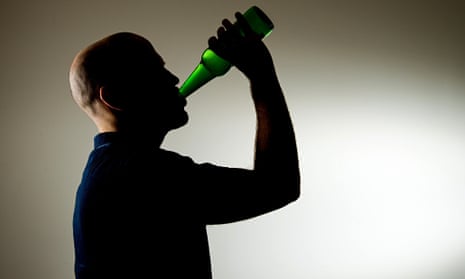Imposing a minimum unit price for alcohol leads to a dramatic fall in drink-related crime, including murders, sexual assaults and drink-driving, a new study shows.
Crimes perpetrated against people, including violent assaults, fell by 9.17% when the price of alcohol was increased by 10% over nine years in the Canadian province of British Columbia. Motoring offences linked to alcohol, such as killing or injuring someone with a vehicle and refusing to take a breath test, fell even more – by 18.8% – the study found.
The findings are the latest evidence that introducing a minimum unit price, a policy that David Cameron championed but later abandoned, yields major benefits. Previous studies have already shown that the policy cuts alcohol-related hospital admissions, saves lives and reduces consumption.
The research, published in the Journal of Studies on Alcohol and Drugs, shows how the big falls in those two types of crime occurred between 2002 and 2010 after the government of British Columbia put up the “floor price” of alcohol – that is, the legal minimum it can be sold for – by 10%.
“Strong associations were observed between the values of minimum alcohol prices and both alcohol-related traffic violations and crimes against persons,” the seven authors write. They were led by Professor Tim Stockwell, an international expert in minimum unit pricing, who is the director of the Centre for Addictions Research of British Columbia.
“It appears that minimum pricing is a powerful tool for reducing alcohol-related harm at the individual and societal level,” Stockwell said.
The study prompted renewed calls for ministers to introduce the policy. “We hope [it] will encourage the new government to act. With Scotland, Northern Ireland and Wales planning to introduce minimum pricing, Westminster surely must take the same path to protect the health and wellbeing of its citizens,” said Professor Sir Ian Gilmore, chair of the campaign group Alcohol Health Alliance UK.
Katherine Brown, director of the Institute of Alcohol Studies, said: “With a million alcohol-related crimes costing the economy £11bn each year, the government can’t afford to ignore evidence for a policy that could reduce crime by 9%.”
In 2012 the then coalition government committed to implementing minimum pricing. Its own consultation concluded that that would lead to 5,240 fewer crimes a year. But ministers did a U-turn in 2013, claiming that there was not enough “concrete evidence” to justify proceeding.
They instead brought in a ban on below-cost selling of alcohol products, often by supermarkets. But experts claim that that approach is far less effective than minimum pricing.
“Minimum unit pricing remains a policy under consideration and we are monitoring developments across the world,” said a government spokesman.

Comments (…)
Sign in or create your Guardian account to join the discussion